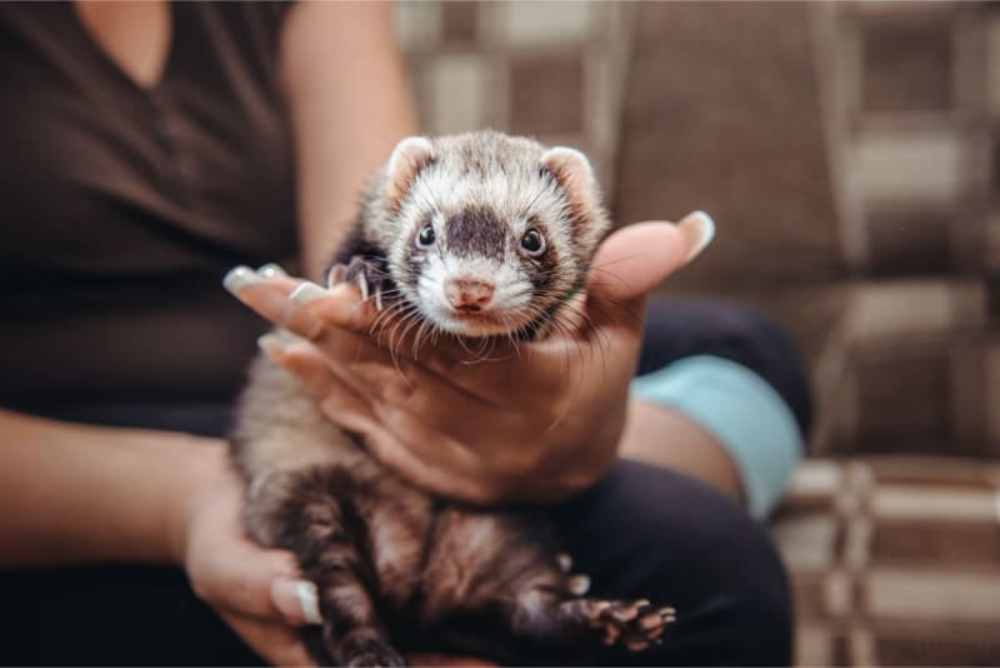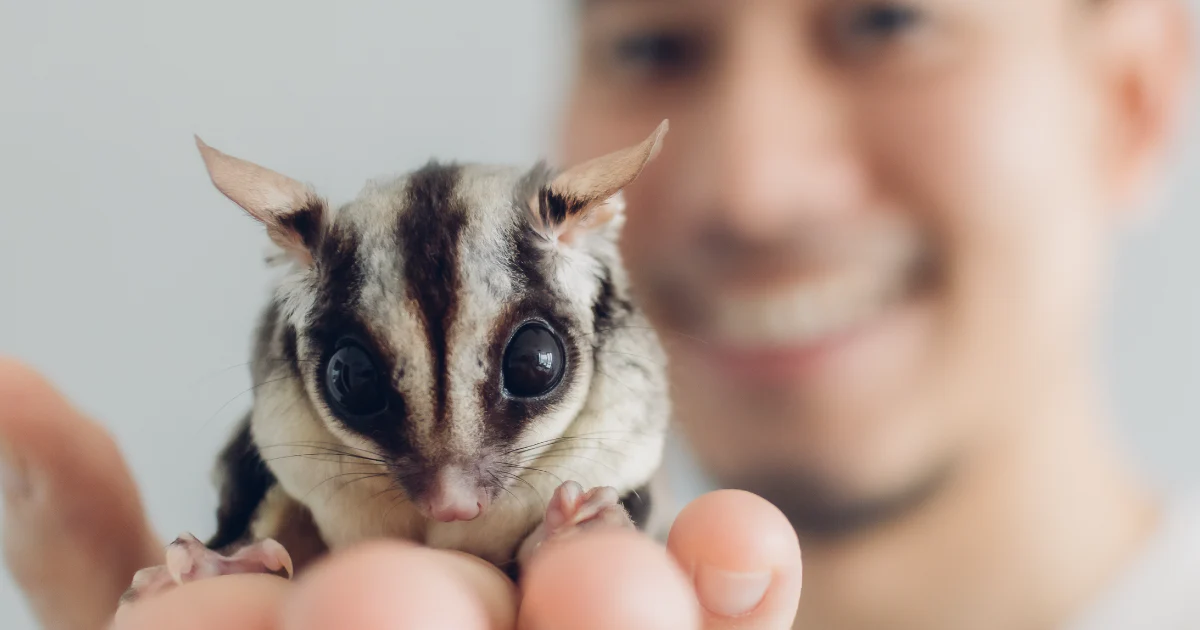
How to Choose the Right Exotic Pet for You: A Comprehensive Guide
Getting an exotic pet can be thrilling. It gives you a chance to care for a unique animal. However, it is also a significant responsibility that requires careful thought and preparation. Choosing the right exotic pet can be overwhelming. You have many options, like reptiles, birds, and small mammals. This guide makes it easy to choose a pet that fits your lifestyle and abilities.
The popularity of exotic pets has increased in recent years as more people seek alternatives to conventional pets like cats and dogs. Owning a rainbow-coloured parrot or a cute hedgehog sounds fun. But exotic pets need special care. This can make them hard to take care of. Many require specific diets, housing, and environmental conditions to thrive. Additionally, some species have long lifespans, requiring a long-term commitment. Selecting an exotic pet, particularly for first-time owners, necessitates careful consideration. This guide will outline essential factors to help you make an informed choice.

Quick Guide on Picking the Right Exotic Pet
- Assess Your Lifestyle: Determine how much time and effort you can commit to pet care.
- Research Pet Species: Look into different exotic animals, their needs, and their lifespans.
- Check Your Home Environment: Make sure your space is suitable for the pet you choose.
- Consider the Costs: Budget for food, veterinary care, housing, and special equipment.
- Consult Experts: Seek advice from veterinarians and experienced exotic pet owners.
- Avoid Impulse Buying: Make sure you are fully prepared before bringing an exotic pet home.
Key Benefits of Owning an Exotic Pet
Owning an exotic pet can be highly rewarding. These animals show interesting behaviours. They can also form strong connections with their owners. Also, having an exotic pet lets you learn about various species and their homes.
Choosing the right pet is key to a good experience for you and your animal. An unsuitable pet can lead to stress, improper care, and potential health issues. Choosing a pet that fits your lifestyle, space, and resources leads to a happy home. This way, you can enjoy a rewarding relationship with your pet.
Step-by-Step Guide to Choosing the Right Exotic Pet
Step 1: Assess Your Lifestyle
Consider your daily routine, work schedule, and personal commitments before getting an exotic pet. Every pet requires attention, but some demand more time than others. Parrots need several hours of social interaction each day. In contrast, some reptiles, like leopard geckos, are more independent. Understanding how much time you can dedicate to pet care will help narrow your choices.
Step 2: Research Different Species
After you check your lifestyle, research different exotic pet species carefully. Consider the following factors:
- Care Requirements: Understand the daily needs of the pet. This includes feeding, cleaning, and interaction.
- Lifespan: Some exotic pets, like tortoises, can live for several decades.
- Dietary Needs: Some species require specialised diets that may be costly or difficult to source.
- Environmental Needs: Many exotic pets need specific humidity, temperature, and lighting conditions.
For example, sugar gliders are social animals that require a large cage and a varied diet. A ball python is relatively low-maintenance and requires minimal daily interaction.
Step 3: Consider Your Living Environment
Your home environment is key in choosing the right exotic pet for you. Consider factors such as:
- Available Space: Large snakes and certain bird species require spacious enclosures. Small mammals or reptiles may require less room.
- Climate Control: Some species need specific humidity and temperature. This may need extra gear.
- Safety Concerns: Keep your home safe by removing toxic plants and securing windows. These steps help protect small and flying pets from potential dangers.
Step 4: Evaluate Your Budget
The cost of owning an exotic pet extends beyond the initial purchase price. Consider ongoing expenses such as:
- Housing and Equipment: Enclosures, heating lamps, UV lights, and substrate can be costly.
- Food and Supplements: Some pets require fresh or live food, which can be expensive and difficult to source.
- Veterinary Care: Exotic pets often require specialised veterinary care. This care may not be available locally and can be expensive.
For example, turtles require a UV light source to maintain healthy shell development. Parrots may need regular wing trims and beak maintenance.
Step 5: Seek Expert Advice
Before you decide, talk to exotic pet experts or vets who know about non-traditional pets. They offer useful insights into various species’ needs. This can help you decide if a specific pet is right for you. You can also join online forums or local exotic pet clubs. They connect you with experienced owners who provide practical advice.

Common Mistakes to Avoid When Choosing an Exotic Pet
1. Impulse Buying
A common mistake is buying an exotic pet on a whim. Many don’t understand the pet’s needs. Some animals require more care than expected, leading to stress and potential abandonment.
2. Underestimating the Commitment
Some exotic pets can live for decades. Parrots, tortoises, and some snakes need long-term care. So, potential owners must be ready for this commitment.
3. Inadequate Research
Failing to research a pet’s specific requirements can lead to improper care. Know the dietary needs, habitat, and social behaviours of an exotic pet before bringing one home.
4. Ignoring Legal Restrictions
Some exotic animals are subject to legal restrictions in certain areas. Always check local regulations before purchasing a pet to ensure you are complying with the law.
Pro Tip: Choose a pet that fits your experience. Beginner-friendly exotic pets, like corn snakes or leopard geckos, are easier to care for and are low-maintenance. In contrast, high-maintenance animals, such as macaws or sugar gliders, need more attention.
Expert Tips
When picking an exotic pet, avoid common mistakes that can lead to problems. Impulse buying is a big one. Exotic pets have specific needs that need careful thought. Another mistake is underestimating the commitment. Some pets can live for decades and require long-term care. Take your time to research and prepare for your new pet.
Advanced Insights / Expert Recommendations
If you want to learn more about exotic pets, look into advanced care techniques and enrichment activities. Creating an enriching environment is vital for your pet’s mental and physical health. This means copying their natural habitat. It also includes giving a diverse diet and offering mental stimulation with toys and interaction. Staying updated on the latest research in exotic pet care will help you provide the best care.
Enhancing Your Exotic Pet’s Quality of Life
Owning an exotic pet is not just about meeting its basic needs. Providing enrichment and mental stimulation is crucial for your pet’s overall well-being. Some ways to enhance your pet’s quality of life include:
- Create a Natural Habitat: Copying your pet’s natural setting can lower stress and promote natural behaviours.
- Providing a Varied Diet: Offering a diverse range of foods can ensure your pet receives the necessary nutrients.
- Interactive toys, puzzles, and social play keep boredom away. They also encourage healthy habits.
Important: Check local laws before buying an exotic pet. Some species may be restricted or need special permits.
Frequently Asked Questions (FAQs)
What is considered an exotic pet?
An exotic pet is an animal not usually kept as a pet. This includes reptiles, birds, amphibians, and small mammals like sugar gliders and hedgehogs.
Are exotic pets legal in the UK?
Certain exotic pets require permits or are subject to regulations in the UK. Always check local laws before acquiring an exotic pet.
Do exotic pets require special care?
Yes, many exotic pets have unique dietary, habitat, and health needs. Research your chosen species thoroughly to ensure you can meet its requirements.
How much does it cost to keep an exotic pet?
Costs vary widely depending on the species. Initial setup costs, food, vet care, and specialised equipment can add up, so budgeting is essential.
Can exotic pets bond with their owners?
Some exotic pets, such as parrots and certain mammals, can form strong bonds with their owners. However, reptiles and amphibians generally do not display affection in the same way as mammals.
Where can I get an exotic pet?
Reputable breeders, rescue centres, and exotic pet shops are good places to find an exotic pet. Always ensure the seller follows ethical breeding and trading practices.
What should I do if my exotic pet gets sick?
Exotic pets require specialised veterinary care. Find a vet with experience in treating exotic species and seek medical attention at the first sign of illness.
Can I travel with my exotic pet?
Travelling with an exotic pet can be challenging due to transport regulations and stress on the animal. Check airline and country-specific import/export rules before travelling.
How long do exotic pets live?
Lifespans vary significantly by species. Some exotic pets, such as tortoises, can live for over 50 years, while others, like small rodents, may only live a few years.
How do I enrich my exotic pet’s environment?
Give your pet suitable toys and hiding spots. Also, it offers chances to climb, burrow, or fly. This keeps them active and happy.

Picking the Best Exotic Pet for You
Choosing an exotic pet is a serious decision that requires careful planning. To choose the right pet, look at your lifestyle. Research different species and talk to experts. Also, get your finances in order. This way, you’ll have a rewarding pet ownership experience. Meeting your pet’s specific needs is key to its health and happiness.
Visit local pet stores, breeders, or animal sanctuaries first. This way, you can see different species up close before deciding. This can help you determine whether an exotic pet is the right choice for you.
Owning an exotic pet can be rewarding if you are knowledgeable and responsible. Ready to start an exciting journey? Begin your research today! Discover the joy of welcoming an exotic companion into your home!


